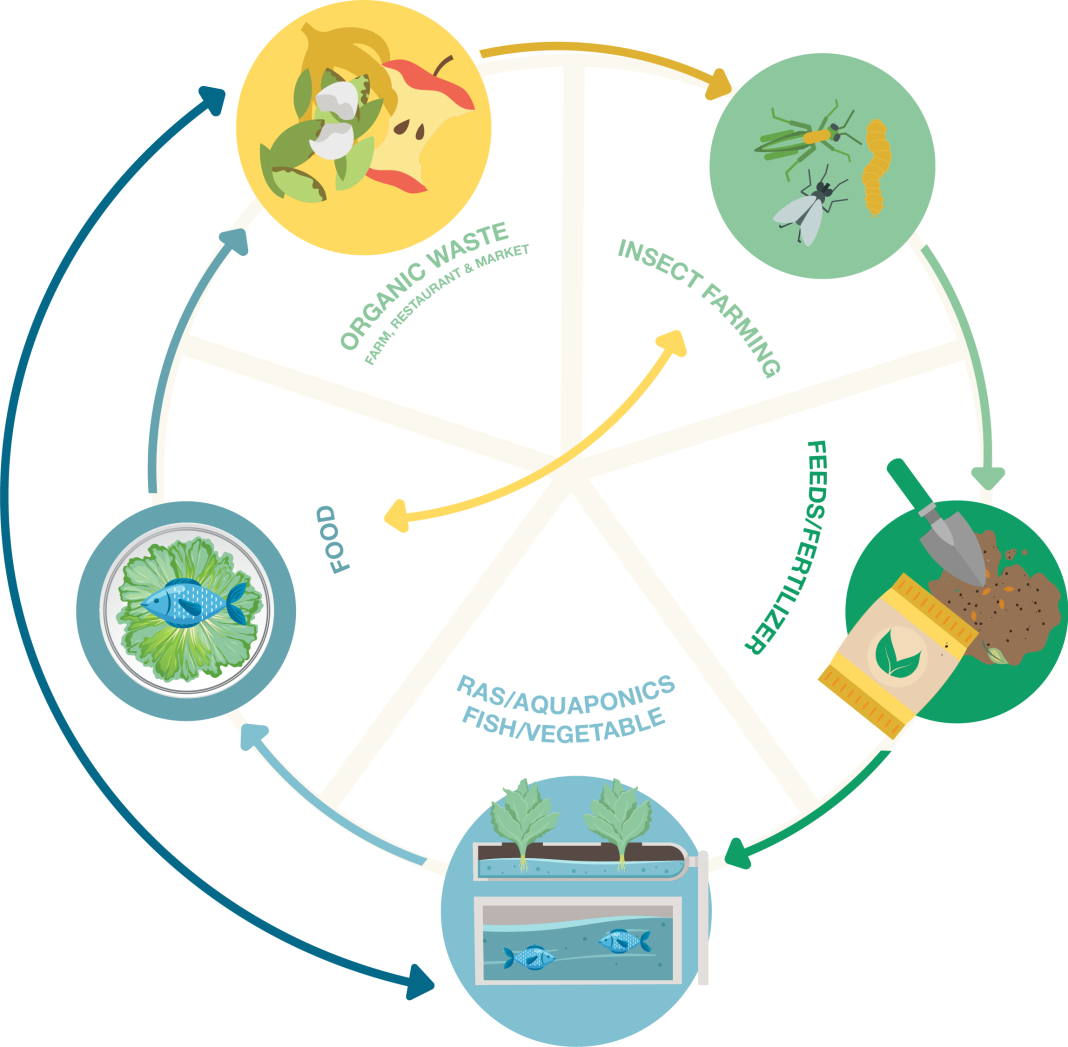Dr Buchenrieder, Dr Benjamin from the University of the Bundeswehr Munich, and Dr Radišić and MS.c. Trivunić, from Foodscale Hub, introduce the INCiTiS-FOOD project for improved food and nutrition security in African urban and peri-urban areas
With 20% of the population, ca. 282 million individuals, undernourished in Africa, the continent is facing a food and nutrition crisis of unprecedented proportions. This crisis intensifies further considering climate change as well as the state (i.e. quantity and quality) of arable land, soil, and water resources. There is an urgent need to provide nutritious and healthy food for the continent’s growing population while also taking into account the rapid urbanisation rate of 45%. So the question remains – what can be done to improve FNS in Africa’s growing city regions while reducing the food-system-related environmental footprint?
This simple question guided the Integrated and Circular Technologies for Sustainable city region FOOD systems in Africa (INCiTiS-FOOD) project in addressing these concerns while contributing to the circularity and transformation of food systems. Using food systems as key entry points, developing innovations and policies that address food and nutrition security (FNS) and environmental sustainability solutions help to achieve the 2030 SDG targets and 2050 Malabo targets, as well as contributing to the Joint Africa-EU Strategy (JAES).
The objectives of INCiTiS-FOOD, funded under the European Union Research and Innovation program, are to enhance African city region food systems so that they address the four dimensions of FNS:
1. Availability of nutritious and safe food through local production.
2. Food access, including affordability.
3. Food utilisation, incl. reduction of food waste.
4. Food stability at all times.
Furthermore, the project will empower communities by opening up opportunities for agri-food businesses along the supply and value chain and achieve environmental justice through transformative food policies. Moreover, the African-led living labs of INCiTiS- FOOD co-create sustainable circular agri-food technologies and business models together with local stakeholders.
INCiTiS-FOOD Circular approach and living labs as validation demonstrations
The core solutions introduced and developed within the project focus on three leading agri-food technologies: hydroponics, aquaponics [a combination of recirculating aquaculture systems (RAS) and hydroponics], and insect farming. Such an approach to feed and food production is suitable for the unique context of African cities because these technologies do not require significant access to land, water or wealth. Concretely, the food production process follows the pattern (see figure):
• Fish provide the needed nutrients for plant growth, and both are used as food sources.
• Organic waste from hydroponics or aquaponics is feed for insect rearing.
• Insects (larvae) serve as fish feed and for organic fertiliser production (solid and liquid), closing the circular path.
Validating the scope of the aforementioned innovations requires collaborative creation in an iterative way to successfully navigate and solve different socio-technical challenges. Living labs are ideal for co-creation and maintaining open innovation ecosystems while addressing real-life issues and validating solutions in context-specific settings.
As food systems include numerous actors and stakeholders, living labs are crucial for collective ideation along the food supply and value chains. The INCiTiS-FOOD project validates its circular agri-food solutions in eight city-region living labs, located in six countries across three (East, West and Central Africa) African regions (Kenya, Ghana, Nigeria, Sierra Leone, Cameroon, and Gabon). This ensures that region- and location-specific refinement are met and that the engagement of local actors is relevant to the context.
Capacity building for empowerment
Food system transformation calls for a change in power dynamics and access to opportunities. By providing marginalised groups such as women and young adults access to knowledge, resources, and skills, the food systems in African city regions are strengthened. INCiTiS-FOOD does this through a dual approach of training the trainers in the living labs and capacity building among living lab participants with a focus on these groups. Training the trainers was structured around two-week intense hands-on workshops in three clustering regions of the living labs (Ghana, Kenya and Gabon) to allow for AU-EU collaboration and transfer of skills to new generations. Moreover, capacity building within the living labs is a continuous process, depending on the needs of each individual.
Long-term vision of INCiTiS-FOOD living labs
City region food system transformation will not be fully implemented without the proper guidance by adequate policy roadmaps and instruments such as the Milan Urban Food Policy Pact (MUFPP). Policy responses often predominantly focus on prioritising food quantity (especially staple foods) over quality, overlooking the importance of healthy and nutritious diets (mainly vegetables and fruits). However, city governments possess avenues of intervention through joining initiatives and allocating resources and infrastructure.
The INCiTiS-FOOD living labs work together with city governments to facilitate joining the MUFPP. This shall ensure commitment to sustainable, inclusive, and climate-resilient city region food systems that are people- centred and provide FNS, adapt the city region’s food systems to climate change, limit food loss and wastage, reduce the pressure on water resources, and conserve biodiversity. Additionally, through practice abstracts and showcasing at policy-centred events and dialogues, INCiTiS-FOOS aims to mainstream the knowledge generated for long-term impact.
Disclaimer: The INCiTiS-FOOD Project (GA No. 101083790) has received funding from the European Union’s Horizon Europe research and innovation programme. All the information is available on the INCiTiS-FOOD Project’s website.

This work is licensed under Creative Commons Attribution-NonCommercial-NoDerivatives 4.0 International.


